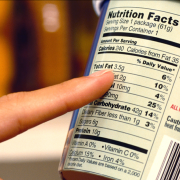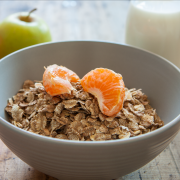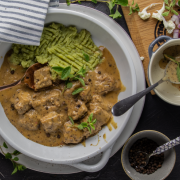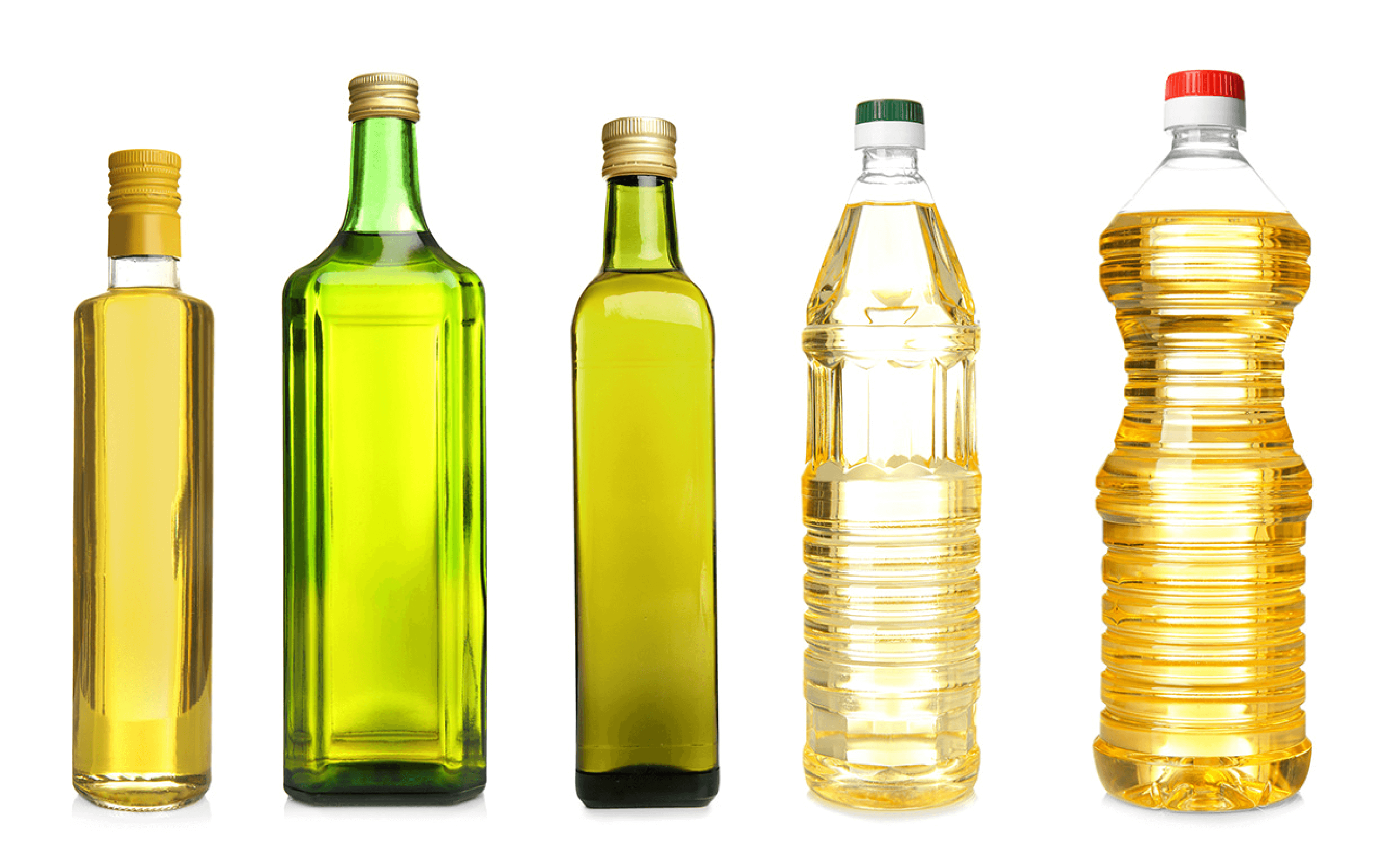
Oils are part of the fat food group. Fats play a role in many structural and metabolic functions in the body, providing fat-soluble vitamins A, D, E and K, protecting the heart, keeping the immune system strong, and providing essential fatty acids for healthy eyes and brain development. Oils are generally (but not always) liquid at room temperature. Vegetable oils, like olive oil, sunflower oil and coconut oil, are extracted from plants but the various oils each have different contributions to our health and nutrition. The oil we chose as a main feature of our diet is important as some are better for our health than others.
Oh so Healthy Olive Oil
No oil has as much of a good of a reputation in nutrition circles as olive oil. Olive oil is rich in the heart-healthy monounsaturated fatty acid called oleic acid. One tablespoon of olive oil has 10g of monounsaturated fatty acids (and just 2g of saturated fat). Avocado oil and canola oil are two other examples of oils rich in monounsaturated fats. These super healthy fats help to reduce total and bad LDL cholesterol and may increase good HDL cholesterol, which together have heart-protective benefits. In particular monounsaturated fats are beneficial when replacing the bad saturated fats. Monounsaturated fats also improve insulin functioning in the body by optimizing cell membrane structure and may reduce inflammation.
There is increasing evidence to suggests that the Mediterranean diet, of which olive oil is the standout nutritional feature, can reduce the risk of cardiovascular disease. Research shows that regular consumption of extra virgin olive oil (compared with refined olive oil) might help in the prevention, development and progression of type 2 diabetes. In addition, olive oil contains other bioactive compounds and phytonutrients for good health.
For this reason, olive oil is without a doubt one of the healthiest oils to use in our diet and why FitChef proudly uses extra virgin olive oil in our meals. Many people think that olive oil should only be used raw and not in cooking. An oil’s smoke point is the temperature limit up to which that oil can be used in cooking. The higher an oil’s smoke point, the hotter the cooking methods you can use it for. The smoking point of coconut oil (177C) is in fact lower than that of other oils that can be used at higher temperature during cooking like virgin olive oil (210C and canola oil (204C). Therefore, use olive oil as your preferred choice of cooking oil, as well as a dressing over salads and vegetables.
Stay Clear of Sunflower Oil
Omega-3s and omega-6s are two essential fatty acids that fall into the polyunsaturated fat group. The body cannot make these fatty acids, which is why it is essential to get them from food. However, within the omega family, omega-3s and omega-6s have a different contribution to our health. Guidelines suggest that we eat more omega-3s like linseed/flaxseed oil (which are beneficial for our health with good anti-inflammatory property) and less omega-6s like sunflower oil, corn oil, safflower oil and soy bean oil (which have pro-inflammatory properties and may contribute to our risk of coronary heart disease). The problem is that these oils are inexpensive so many processed and prepared foods are loaded with polyunsaturated oils like sunflower oil.
That said, polyunsaturated fats are still better for our health than saturated fats. This was shown in a large study that followed 120 000 participants for 24 years who replaced saturated fats with the same amount of heathier monounsaturated and polyunsaturated fats. This lowered the risk of heart disease by a considerable 15 and 25%, respectively.
The Confusion About Coconut Oil
Naturally cholesterol free, coconut oil is high in saturated fats (92%). Lauric acid is the name of the main type of saturated fatty acid found in coconut oil.
There has been some research on the positive health benefits of coconut oil which may increase HDL, the good type of cholesterol. In contrast, other research has shown that because of the longer length of the saturated fat molecule, this type of fat can tightly pack into our cell membranes and can cause adverse health benefits. Compared to saturated fats such as butter, coconut oil neither raises total cholesterol nor the bad, unhealthy LDL cholesterol. However, when compared to unsaturated oils like olive oil, coconut oil has been shown to increase total cholesterol and bad LDL cholesterol. This is partly why there is some confusion around whether coconut oil is or isn’t good for our health.
Recommendations from international bodies are that saturated fats should be limited to less than 7% of our total daily kilojoules. For an average man following an 8400kJ diet, this works out to 16g of saturated fat per day. As one tablespoon of coconut oil has 12g of saturated fat, it’s easy to see how quickly it is to reach your saturated fat intake for the day if consuming a lot of coconut oil. Thus, while coconut oil may be better than other fats such as butter at, research shows that unsaturated fats like olive oil are still better for our health. A reminder that coconut oil, like all fats and oils, is high in energy (calories). While coconut oil may certainly be used occasionally as a culinary oil to add flavour to traditional dishes such as like curries, it is not recommended as the main culinary oil for a healthy diet.
Pass on the Partially Hydrogenated Oils
Many processed foods are made with partially hydrogenated oils which contain trans fats, which research has shown raises cholesterol levels. Trans fats undergo a chemical process called hydrogenation where hydrogen is bubbled through a vegetable oil. This chemical alteration causes the fats to change in chemical structure from oils normally liquid at room temperature to more solid fats, such as those found in hard margarines. This gives the product a longer shelf life.
Trans fats are relatively inexpensive to produce, making it ideal for use in the food industry. Sources of trans fats include hard (brick) margarine, shortening (fat used in baking), baked goods such as biscuits, cakes, pastries, and doughnuts, microwave popcorn, and potatoes chips. Trans fats are also found in deep-fried foods like fried chips, fried fish, and fried chicken. Make it a habit to read your food labels and look out for the work partially hydrogenated oil.
The great news is that we now recognise the dangers of trans fats and governments around the world have banned trans fats in the food industry. It has since been discovered that the addition of hydrogen makes trans fats behave more like a saturated fat, and it is now well accepted that trans fats increase the risk for heart disease. Trans fats remarkably reduce the levels of good HDL cholesterol levels and increase bad LDL cholesterol levels. Trans fats are also linked to cancer and diabetes. In 2011, the South African government imposed tough new restrictions on the use of trans fats in our foods. This new legislation required that all foods and food products contain less than 2g of trans fats per 100g of food or food product.
In summary, it is clear that well-established evidence supports that not all fats/oils are equal. Monounsaturated fats like (extra virgin) olive oil should be favoured, polyunsaturated fats like sunflower oil eaten in moderation, and saturated fats and trans fats limited to only on occasion.
|
Monounsaturated Oils |
Polyunsaturated Oils |
Saturated Oils |
Partially Hydrogenated Oils/ Trans Fats |
|
§ Avocado oil § Olives olive § Canola oil § Peanut oil
|
§ Omega3 o Linseed oil o Flaxseed oil § Omega 6 o Sunflower oil o Soybean oil o Cottonseed oil o Corn oil o Sesame seed oil o safflower oil |
§ Coconut oil § Palm kernel oil
|
§ Hard (brick) margarines § Confectionary and bakery items e.g. pies, pastries, biscuits and salty crackers § Oils used by the fast food industry for all deep-frying such as potato chips |
- Eyers L. Evidence Paper: Coconut Oil and Heart Health. New Zealand Heart Foundation. 2014.
- FAO/WHO. Fats and fatty acids in human nutrition: Report of an expert consultation. 2010; Rome, Italy.
- Hooper L, Martin N, Abdelhamid A, Davey Smith G. Reduction in saturated fat intake for cardiovascular disease. Cochrane Database of Systematic Reviews 2015, Issue 6.
- Hruby A, Hu F. Saturated fat and heart disease: The latest evidence. Lipid Technology. 2016, Vol. 28, No. 1.
- Kasturiratne AL, Wickremasinghe, A.R. Coconut consumption and cardiovascular disease incidence: is there an association? A case control study in Sri Lankan population. Abstract of 15th International Nutrition and Diagnostics Conference. 2015; Prague, Czech Republic.
- Lawrence GD. Dietary Fats and Health: Dietary Recommendations in the Context of Scientific Evidence. Advanced in Nutrition. 2013; 4: 294–302.
- Lichtenstein AH et al. American Heart Association Nutrition Committee. Diet and lifestyle recommendations revision 2006: A scientific statement from the American Heart Association nutrition committee. Circulation. 2006; 114 (1) :82-96.
- Martinez Gonzalez MA et al. Olive oil consumption and risk of CHD and/or stroke: a meta- analysis of case–control, cohort and intervention studies. British Journal of Clinical Nutrition. 2014;112:248-259.
- Position of the Academy of Nutrition and Dietetics: Dietary Fatty Acids for Healthy Adults. J Acad Nutr Diet. 2014;114:136-153.
- Schwingshackl L et al. Olive oil in the prevention and management of type 2 diabetes mellitus- a systematic review and meta-analysis of cohort studies and intervention trials. Nutrition and Diabetes. 2017;e262.
- Smuts CM and Wolmarans P. The importance of the quality or type of fat in the diet: a food-based dietary guideline for South Africa. S Afr J Clin Nutr 2013;26(3)(Supplement):S87-S99.
- U.S. Department of Health and Human Services and U.S. Department of Agriculture. 2015–2020 Dietary Guidelines for Americans. 8th Edition. December 2015. Available at http://health.gov/dietaryguidelines/2015/guidelines/.
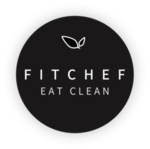
 No added or artificial sugars
No added or artificial sugars The cleanest ingredient labels
The cleanest ingredient labels

